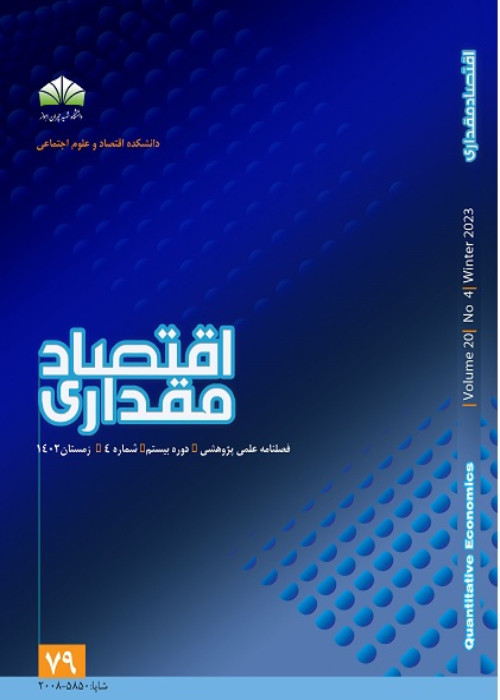Analysis of the Effect of Investors’ Confidence on Monetary Policy Transmission Mechanism and Economic Growth without Crude Oil Export: A Multivariate GARCH Approach
The MGARCH approach is an important factor for the capital market and the investors. The main goal of investors is to get a maximum profit from the output of their investment. Financial assets must be greater than other options in order to encourage the investors to invest in them (Mehrani & Bahramfar, 2004). The implementation of efficient market economy theory by governors in the recent years has partially increased the capital market's share of money in financing firms. Qualitative and quantitative development of the capital market and Islamic financial affairs as the main sources of financing in the last two decades, formulation of accounting and auditing standards required for economic entities, and other corrective actions have turned the exchange market into one of the best options for investment. According to the latest statistics, more than ten million Iranians have stock code and have invested part of their resources in the exchange market. Considering the importance of the matter, this essay aims to study and survey the effect of financial sustainability on monetary policy transfer mechanisms. The correlation between investor confidence in the markets, money growth and macroeconomic growth without oil is going to be analyzed alongside their fluctuations. The practical research in the developed markets has shown that any change in macroeconomic variables brings about subsequent changes in stock prices; therefore, it is expected that there is a strong relationship between stock prices and macroeconomic variables. The stock price index is the most important factor influencing investor decision making in the stock market, and we need to be aware of the factors that influence stock price. The process of monetary policy transfer begins from the asset market because the costs of information and transaction for most assets are lower than the costs of changing the production or adjusting consumption or investment of durable goods, especially when there is uncertainty whether policies are permanent or temporary. The asset market responds very quickly, and thus assets prices play an important role in the money transfer mechanism. Using the MGARCH estimator, this study reveals the relationships between investors' confidence ratios, real money growth, and economic activity without crude oil exports and their fluctuations. Using this estimator helps estimation of uncertainties and produces perfectly consistent criteria. In this essay, the PEG index of price-earnings to earnings growth for a variable of investor confidence is used, which is a better indicator than PE. It should be put into consideration that the potential growth of the companies can reflect the life of the investors as it uses several revenue generating factors such as brand, human capital and expectations and barriers to entry. This study investigates the effect of financial sustainability on monetary policy transfer mechanisms in Iran. The correlation between investor confidence in markets, money growth and economic growth without Iranian crude exports is analyzed along with their volatility. We particularly consider the heterogeneity of error variances in an MGARCH framework to obtain the estimated uncertainty criteria endogenously. In this paper, seasonal data of variables from the beginning of 1991 to the end of 2016 are considered. The results have shown that there is a positive correlation between macroeconomic volatility without oil and PEG investor confidence. The M2 cash flow fluctuation has negative effects on PEG. The results also indicate a bilateral Grange impact between macroeconomic volatility without crude oil exports and liquidity volume. Other results of the study are:- Monetary policy can only directly affect investor confidence and its fluctuations in a long term. There is no significant Granger relationship between macroeconomic without oil and GDP growth. - The results show the negative impact of macroeconomic uncertainty on oil noilGDP growth and the cause of the negative effect between production growth and its medium- and long-term volatility. - If monetary policy can directly control the capital market and its sustainability, given the correlation with the noilGDP and its fluctuations, production consolidation and asset price seem to be sufficient goals. Of course, having a smooth economic cycle can relatively and satisfactorily stabilize the market. However, the analysis shows the importance of monetary policy, which reflects the strong negative correlation between currency fluctuations and macroeconomic stability without oil and assets.
- حق عضویت دریافتی صرف حمایت از نشریات عضو و نگهداری، تکمیل و توسعه مگیران میشود.
- پرداخت حق اشتراک و دانلود مقالات اجازه بازنشر آن در سایر رسانههای چاپی و دیجیتال را به کاربر نمیدهد.



